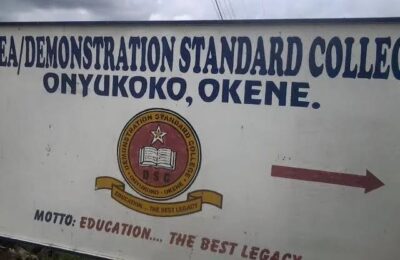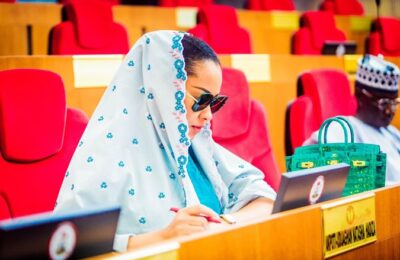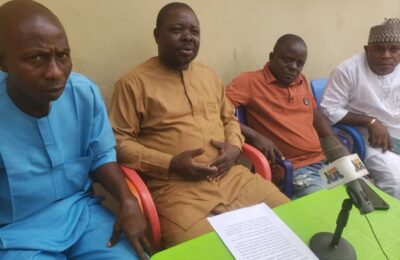The Igala Kingdom, once a beacon of strength, unity, and political relevance in Nigeria, has regrettably witnessed a steady decline in influence and respect in both state and federal politics. This decline is not the result of external forces alone, but largely a consequence of the attitudes and actions of our political actors, stakeholders, and leaders who have placed personal gain above communal interest.
It is disheartening to observe that many of our contemporary leaders have lost touch with the essence of where they hail from — the great Igala land. They have abandoned the values of patriotism, service, and solidarity that once defined our ancestors. Instead, they have embraced selfishness, nepotism, and the politics of “stomach infrastructure” — a politics that prioritises immediate personal benefit over collective development.
This parochial and short-sighted attitude has left our land underdeveloped, our people disillusioned, and our future generations uncertain about the path ahead.
The Uniqueness of the Igala People
The Igala are a proud and noble people with a rich cultural heritage, deep spirituality, and an unbroken historical lineage of courage and leadership. Our ancestors were renowned for their unity, wisdom, and valour — virtues that built a strong kingdom that commanded respect across the Niger-Benue region and beyond. The Igala people stand out for their hospitality, resilience, discipline, and deep respect for authority and tradition.
Historically, the Igala Kingdom was one of the strongest and most organised in pre-colonial Nigeria. Under the leadership of great monarchs and warriors, the Kingdom flourished as a centre of commerce, governance, and cultural excellence. The late Attah Ayegba Oma Idoko, who fought gallantly to defend and consolidate the Igala nation, remains a symbol of bravery and unity. Others such as Attah Ameh Oboni and Attah Aliyu Obaje stood tall in preserving the dignity of our people and culture.
Legacy of Our Forebears
We cannot talk about the political heritage of the Igala people without remembering towering figures such as His Excellency Prince Abubakar Audu, the political architect of modern Kogi State; Dr. Stephen Achema, the symbol of unity and political consciousness; who served our state with vision; and countless others who stood firm for the progress of the Igala nation.
These leaders, despite their differences, shared a common vision — to make Igala land a formidable voice in Nigeria’s political and socio-economic landscape. Sadly, their legacies have been neglected. Today’s political class appears more interested in the politics of personal enrichment than in building lasting structures that can benefit our people.
The Consequence of Stomach Infrastructure Politics
The rise of “stomach infrastructure” politics — where leaders seek immediate gratification through money, food, fake political promises, or temporary handouts — has eroded the moral and intellectual foundation of leadership in Igala land. Our political conversations now revolve around who can give the most money, not who has the best vision or the most capacity to serve. This has relegated our land and people to pitiable conditions, where poverty, unemployment, and infrastructural decay thrive amidst abundant human and natural resources.
This brand of politics has silenced the voices of the masses and weakened the bond of unity that once defined the Igala people. The absence of visionary leadership has made our youths lose hope, our elders lose pride, and our traditional institutions lose relevance in governance and development matters.
The Call for Unity and Restoration
It is time for a new awakening. Igala leaders, traditional rulers, political actors, and stakeholders must come together and rekindle the flame of unity that once made us great. The Igala Kingdom cannot rise again until its people rise above selfishness and division. We must learn to place the collective interest of our people above personal ambition.
If united, the Igala nation stands to reclaim its rightful place in Kogi State and Nigeria at large. Our population, intellect, and cultural cohesion give us every advantage to be a major force in the socio-political and economic development of the nation. What is required is unity of purpose, visionary leadership, and sincere service to humanity.
Let us return to the values of our late heroes — men and women who placed the Igala identity above personal comfort. Let us revive the spirit of courage, integrity, and communal progress that made our ancestors enviable across Nigeria.
Conclusion
The time to act is now. Our land is bleeding, our youth are waiting, and history is watching. The Igala Kingdom deserves better — not leaders who trade the future for immediate gain, but visionaries who can restore the pride of our people and give direction to generations unborn.
This is not just a message; it is a clarion call. A call to awaken the sleeping giants of Igala land. A call to revive our lost glory and reposition the Igala Kingdom on the map of greatness, where it truly belongs.
– SULE Kabiru, Ph.D.
Email: kabirudkn@yahoo.com




